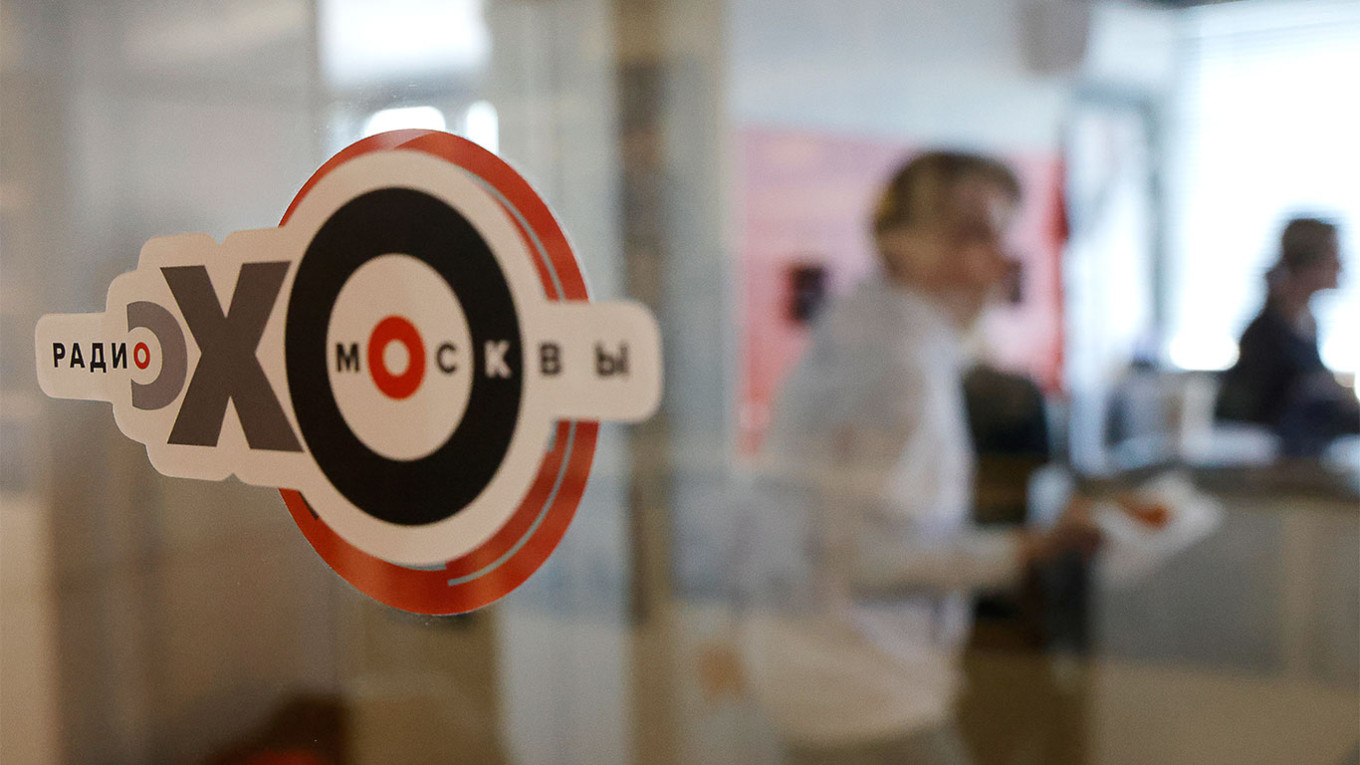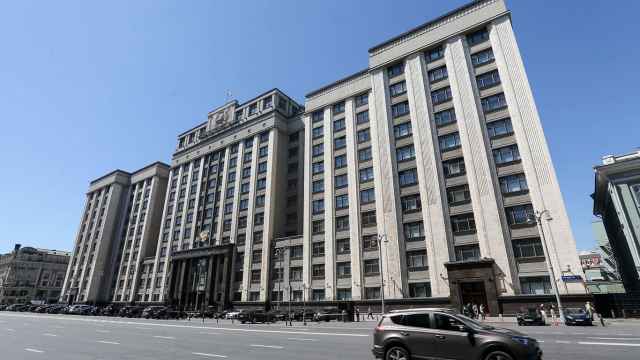Russia’s state-run news agency Rossiya Segodnya has applied to trademark the brand of Ekho Moskvy, the liberal radio station that was banned following the invasion of Ukraine, according to Russia’s Federal Service for Intellectual Property (Rospatent).
Sputnik Radio, one of several Rossiya Segodnya products, took over Ekho Moskvy’s FM frequencies after it was taken off the air in early March 2022 for spreading “false information” about the Russian military.
An Aug. 2, 2023, entry on Rospatent’s website states that a formal examination was ordered on whether to grant Rossiya Segodnya usage rights of Ekho Moskvy’s black-white-and-red logo.
Rossiya Segodnya said Tuesday it filed an application for the Ekho Moskvy brand “due to the expiration of this trademark’s registration with its owner.”
“There’s no point in discussing options for the future use of the brand until the state body [Rospatent] makes a decision,” the agency’s press service said in a statement on the messaging app Telegram.
Rospatent notes that the trademark for Ekho Moskvy’s name expired on July 14 and its logo expires on Aug. 20.
Ekho Moskvy’s former editor-in-chief Alexei Venediktov compared Rossiya Segodnya’s takeover bid to “rewriting history textbooks.”
“The Ekho Moskvy radio station doesn’t exist on the air and on paper, but Ekho Moskvy is something serious, respectable and honest in people’s minds,” Venediktov told the independent newspaper Novaya Gazeta.
“Ekho Moskvy is part of the history of modern Russia… [Authorities] deprive people of symbols, hope and memory. And the deprivation of memory is one of the main actions taking place now,” he said.
Ekho Moskvy became a beacon for Russia’s democrats and liberals since its founding in 1990 during the Soviet Union’s dying days.
Taken off the air only once before — during the hardline communist August Coup in 1991 — the station endured even as Russia took a sharp authoritarian turn.
Owned by gas giant Gazprom’s media arm, the station maintained a delicate balance between remaining relatively free and uncensored while keeping up its connections with the Kremlin.
Venediktov’s own ties to the political elite — including his role in promoting a controversial electronic voting scheme for the 2021 parliamentary elections — saw him reviled by much of Russia’s anti-Kremlin opposition.
A Message from The Moscow Times:
Dear readers,
We are facing unprecedented challenges. Russia's Prosecutor General's Office has designated The Moscow Times as an "undesirable" organization, criminalizing our work and putting our staff at risk of prosecution. This follows our earlier unjust labeling as a "foreign agent."
These actions are direct attempts to silence independent journalism in Russia. The authorities claim our work "discredits the decisions of the Russian leadership." We see things differently: we strive to provide accurate, unbiased reporting on Russia.
We, the journalists of The Moscow Times, refuse to be silenced. But to continue our work, we need your help.
Your support, no matter how small, makes a world of difference. If you can, please support us monthly starting from just $2. It's quick to set up, and every contribution makes a significant impact.
By supporting The Moscow Times, you're defending open, independent journalism in the face of repression. Thank you for standing with us.
Remind me later.






